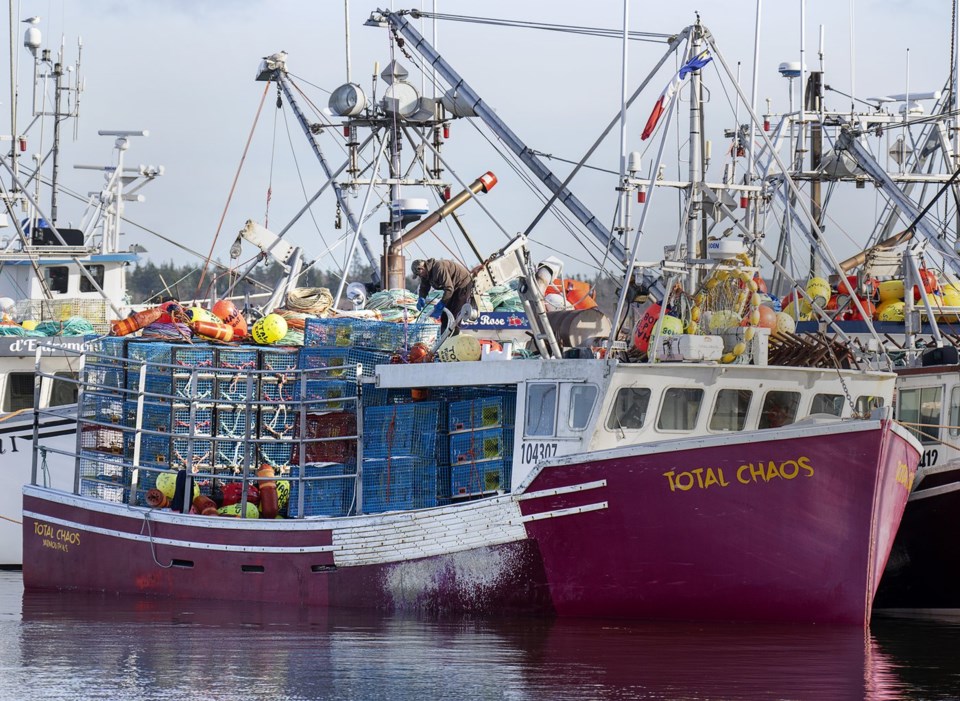HALIFAX — Seafood industry representatives in Atlantic Canada are urging harvesters and exporters to diversify their markets with U.S. President Donald Trump back in the White House.
As Trump was sworn in Monday, his team indicated he was holding off on his threat to impose 25 per cent across-the-board tariffs on Canadian exports on his first day in office.
But Geoff Irvine, director of the Lobster Council of Canada, said in an interview that the new U.S. administration is nonetheless sending a message that Canada's seafood industry should shift its focus to other international markets.
"The key is developing our trade in other places," Irvine said Monday. "That's my message to anybody who will listen. We have to build more resiliency in our business by selling more to a greater variety of places."
He says Quebec and Atlantic Canada in 2023 together exported about $1.6 billion worth of lobster to the United States, adding that if tariffs were imposed, it would cost valuable jobs and income across coastal communities.
Canadian seafood industry representatives are heading on a trade mission to Europe in two weeks, but Irvine said the sector could do more by also developing markets in Asia and the Middle East.
Stewart Lamont, managing director of Tangier Lobster Company, based in Tangier, N.S., expressed hope Monday that Trump's tariff program is now "very much up in the air," as there's growing consumer awareness that tariffs could mean higher prices for Americans on food and fuel.
Lamont — whose firm exports live lobster within Canada and to clients in Europe, Asia and the Middle East — said he chose years ago to focus on customers outside of the United States. "Diversify as much as you can so that you diminish your risk in the short term," he said in an interview.
However, Lamont notes that the seafood sector on Canada's East Coast is closely tied in with the U.S. industry, with some catches crossing the border multiple times, and with processors and exporters sometimes owning operations in both countries.
Osborne Burke, the manager of Victoria Co-operative Fisheries Ltd. in Neils Harbour, N.S., said he believes a tariff slapped on seafood would be deeply unpopular with U.S. consumers, who would see steep price hikes. "Do we have concerns, yes. But they should have greater concern," he said in an interview Monday.
Like Lamont, Burke is looking to diversify his customer base. Last year, his co-operative — which works with about 100 harvesters in Cape Breton — could have sold more of its crab and lobster to southeastern Asia but chose to keep selling to American customers. "With the threat of these tariffs ... we're already looking to sell more to our Asian customers," he said.
For David DiCenso — the manager of Boston Wholesale Lobster — the possibility of a tariff on the crustaceans he imports from Canada is a risk to his business, and he's hoping Trump abandons his threat.
"We only make a 10 per cent margin, and there's no way you can tack on a 25 per cent tariff to that, and there's no way you can pass that on to the harvesters," DiCenso said in an interview Monday from Boston.
Robert Huisch, a professor at Dalhousie University's department of international development studies, advised Atlantic Canadian businesses to remain vigilant over the next four years about the risk of U.S. tariffs.
American consumer anger over higher seafood prices at supermarkets and restaurants is not likely to be a determining factor when the U.S. tariff decision is made.
Huisch said Canadian governments should unite behind levying extra charges on exported energy as potential retaliation against across-the-board tariffs.
"Americans don't depend on snow crab or other seafood the same way they do on energy, and I think that's going to be the strong card in any negotiations between Canada and the U.S.," he said.
This report by The Canadian Press was first published Jan. 20, 2025.
— With files from The Associated Press.
Michael Tutton, The Canadian Press

